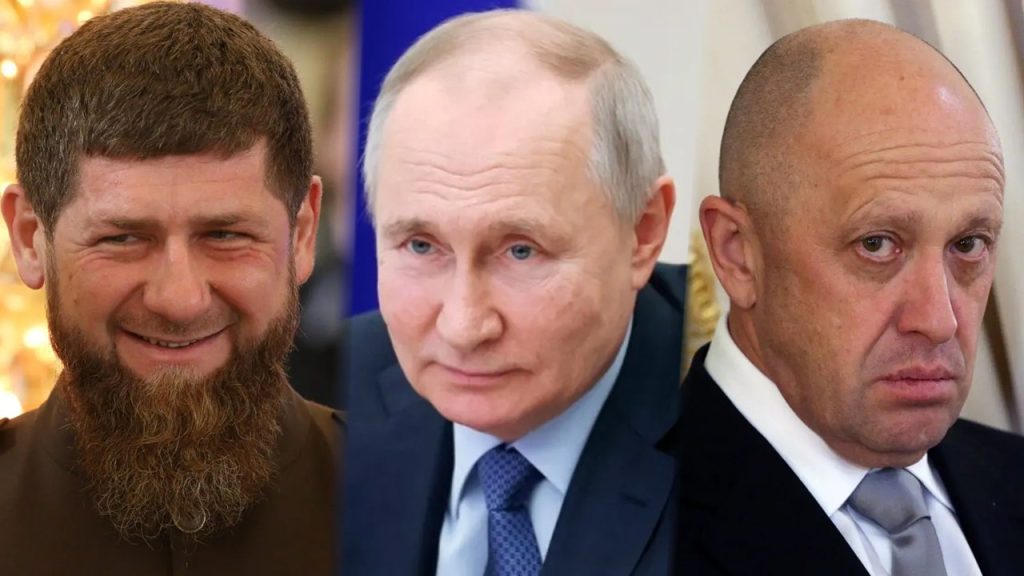In recent developments, a Chechen warlord has integrated 3,000 former Wagner mercenaries into his growing forces, solidifying his control over a significant faction within the Russian army. The Chechen commander, Ramzan Kadyrov, announced that a Wagner commander with the call sign Ratibor will lead the mercenaries in the legendary Akhmat special forces. These former mercenaries, who had previously served under Ratibor in Wagner, are expected to enhance the Chechen military’s capabilities. Kadyrov hinted at the possibility of their involvement in Ukraine, suggesting they could have a considerable impact in the region.
The addition of the former Wagner mercenaries to the Chechen forces has raised concerns and speculations about the warlord’s intentions. Some believe Kadyrov is preparing to defend Russian President Vladimir Putin against potential threats, including coups or power vacuums that could arise from Putin’s death. Others suggest that Kadyrov may be positioning Chechnya to establish independence and assert power in the aftermath of such events. Kadyrov has actively sought to integrate Wagner mercenaries into his army since the group’s dissolution, emphasizing their combat experience and efficiency.
Kadyrov’s governance in Chechnya is characterized by repressive measures aimed at controlling various aspects of society, including music. A ban on music outside a specific tempo range – 80 to 116 beats per minute – reflects Kadyrov’s desire to align with the “Chechen mentality and musical rhythm” and preserve the future of the Chechen people. This measure, seen as a way to ban Western music and enforce cultural norms, has sparked criticism and raised concerns about the restriction of artistic expression in the region. Additionally, reports of human rights violations, including the alleged targeting, detention, torture, and murder of gay men in Chechnya, have drawn international condemnation and calls for investigation.
The integration of former Wagner mercenaries into the Chechen forces has implications for Russia’s military landscape, with Kadyrov’s personal army gaining strength and influence within the Russian army. The close ties between Kadyrov’s forces and the former mercenaries, along with their combat experience, signal a significant shift in the region’s dynamics. As Kadyrov continues to consolidate power and strengthen his forces, questions remain about the potential impact on regional stability and security. The move also underscores Kadyrov’s ambition to enhance Chechnya’s military capabilities and assert its presence in broader geopolitical contexts.
Despite concerns about Kadyrov’s governance and the repression of certain freedoms in Chechnya, the warlord’s actions align with his vision of preserving Chechen culture and values. The ban on music outside a specific tempo range, along with other repressive measures, reflects Kadyrov’s efforts to maintain control over societal norms and practices. While these measures have faced criticism from human rights experts and the international community, Kadyrov continues to enforce his policies and consolidate power in the region. The integration of former mercenaries into his forces further solidifies Kadyrov’s influence and authority in Chechnya and beyond.
In conclusion, the integration of former Wagner mercenaries into the Chechen forces under warlord Ramzan Kadyrov’s command signifies a strategic move that could have far-reaching implications. As Kadyrov strengthens his personal army and enhances its capabilities with experienced fighters, concerns about his intentions and impact on regional stability mount. The repressive measures implemented by Kadyrov in Chechnya, including restrictions on music and reports of human rights violations, raise questions about governance and respect for fundamental rights. As Kadyrov navigates internal and external dynamics, his actions and alliances may shape the future of Chechnya and its role in broader geopolitical contexts.


